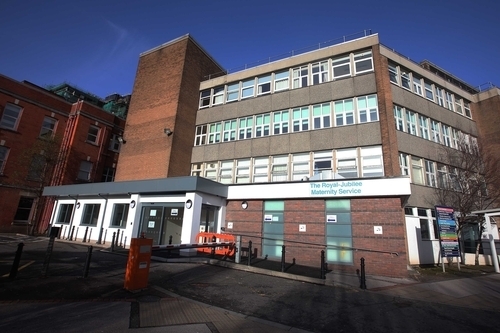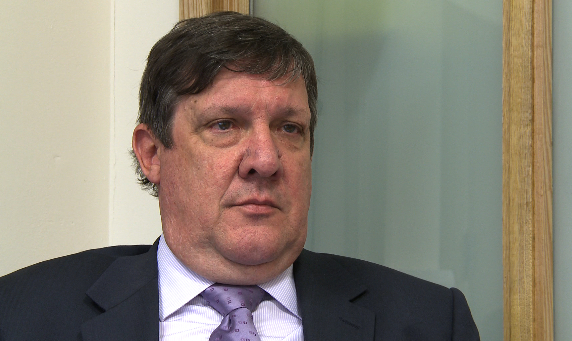By Niall McCracken
NORTHERN Ireland’s chief coroner has ruled that an inquest will not be held into the death of the last baby to die of pseudomonas at the Royal Jubilee Maternity Ward in January this year, The Detail can reveal.
The solicitor for the family of the third baby to die at the Royal Hospital says the parents of ‘Baby 3’ have indicated that they will accept the decision not to hold an inquest. However Ernie Waterworth stressed that the family still feel there are important outstanding issues which need to be addressed about why their baby died.
The coroner referred to an independent review investigating the deaths carried out by the RQIA. However, the baby’s parents have already rejected these findings arguing it didn’t address specific concerns they had raised about their own case.
We contacted the Lord Chief Justice’s Office for Northern Ireland to ask if inquests would be carried out into all of the pseudomonas baby deaths which occurred in Northern Ireland.
In response the office confirmed that one of the four pseudomonas baby death cases has been closed without an inquest, but it said that “the investigation was on-going regarding the other three cases and therefore no decision has been made in each of these cases”.
On December 10 2011 one baby died as a result of pseudomonas at Altnagelvin Hospital in Derry. By January 6 2012, two further babies had died of the infection in a ward at the Royal Jubilee Maternity Hospital in Belfast and on January 19 the last baby to contract pseudomonas died on the neonatal ward.
In a further story we reveal the extent to which deadlines set earlier this year by the review team investigating the outbreak have been missed and examine why a number of recommendations remain outstanding.
We also analyse the findings of a Health Protection Agency report that sheds more light on the information that circulated in the aftermath of the outbreak.
THE INQUESTA coroner is an independent judicial officer and a death must be reported to them if it resulted, directly or indirectly, from any cause other than natural disease for which the deceased had been seen and treated within 28 days of death.
It is the coroner’s job to establish the cause of death and they can make whatever inquiries are necessary to do this, including obtaining witness statements and medical records or holding an inquest, independent of any other investigation.
On September 3 2012 the coroner’s medical adviser wrote to Mr Waterworth and outlined that in light of all the documentation available relating to the independent review published by the Regulation Quality and Improvement Authority (RQIA) in May, the coroner was content for the case to be closed allowing for the death to be registered as:
i a pseudeomonas septicaemia
ii extreme prematurity
In a response on September 11 2012, Mr Waterworth outlined the family had concerns that premature birth was to be attributed to the death in view of the fact that medical staff had assured them at the time that their baby was “in good condition at birth and did not require resuscitation.”
As previously reported by The Detail, medical records show that Baby 3 was progressing well until January 16 following an incident on January 14 when the baby’s skin was torn. The family were subsequently advised by a doctor that their baby would have survived had it not been for the pseudomonas infection.
In his response Mr Waterworth stated: “If it remains the case that the coroner intends to retain the two conditions as the cause of death we are instructed to initiate proceedings to challenge same.
“At this point we would request a full hearing of the circumstances in the form of an inquest as it is our view that such a process will draw attention to the existence of circumstances, which if unremedied, might lead to further deaths.”
In a response from September 13 2012, the senior coroner, John Leckey, said that there was no doubt that Baby 3 had died from pseudomonas and that “extreme prematurity” was referred to under Part II of the death certificate as it allows the medical practitioner to give details of “other significant conditions contributing to the death, but not related to the disease or condition causing it”.
He said the Registrar General would attribute Baby 3’s death to “Pseudomonas Septicaemia” and that the condition was not caused by “extreme prematurity”.
The coroner reiterated his belief that no inquest was necessary because of the documentary evidence already available as part the independent review.
In his final response Mr Waterworth said that his clients’ found the content of the independent review unsatisfactory and that the matter would be the subject of civil litigation. He said: “Such actions should permit our clients’ concerns to be aired in such a way to address their objectives, namely to satisfy themselves that similar deaths should not occur in the future.”
The Police Service of Northern Ireland is currently considering the family of Baby 3’s allegation of corporate manslaughter against the Belfast Trust.
 By
By

